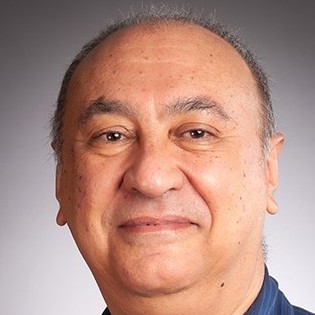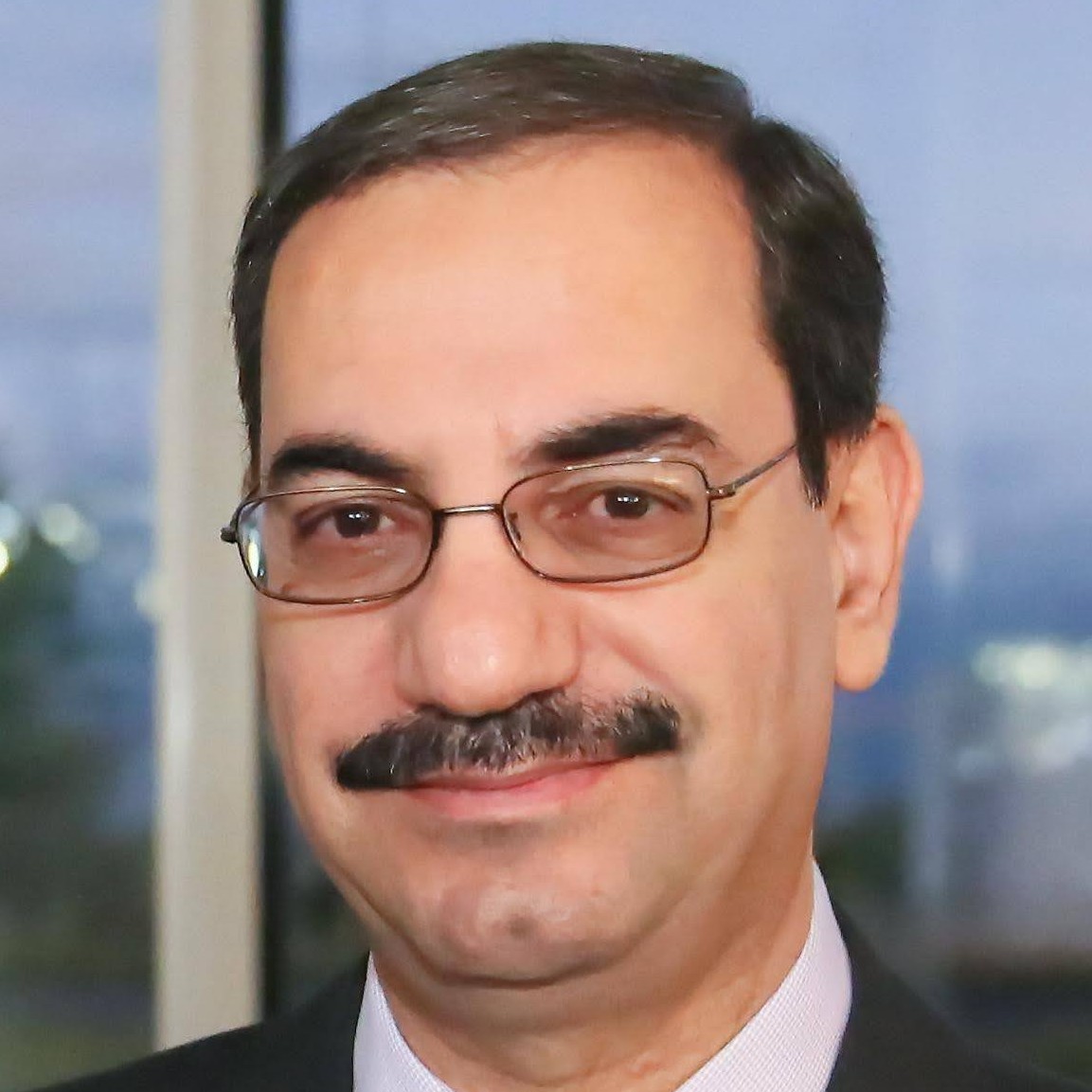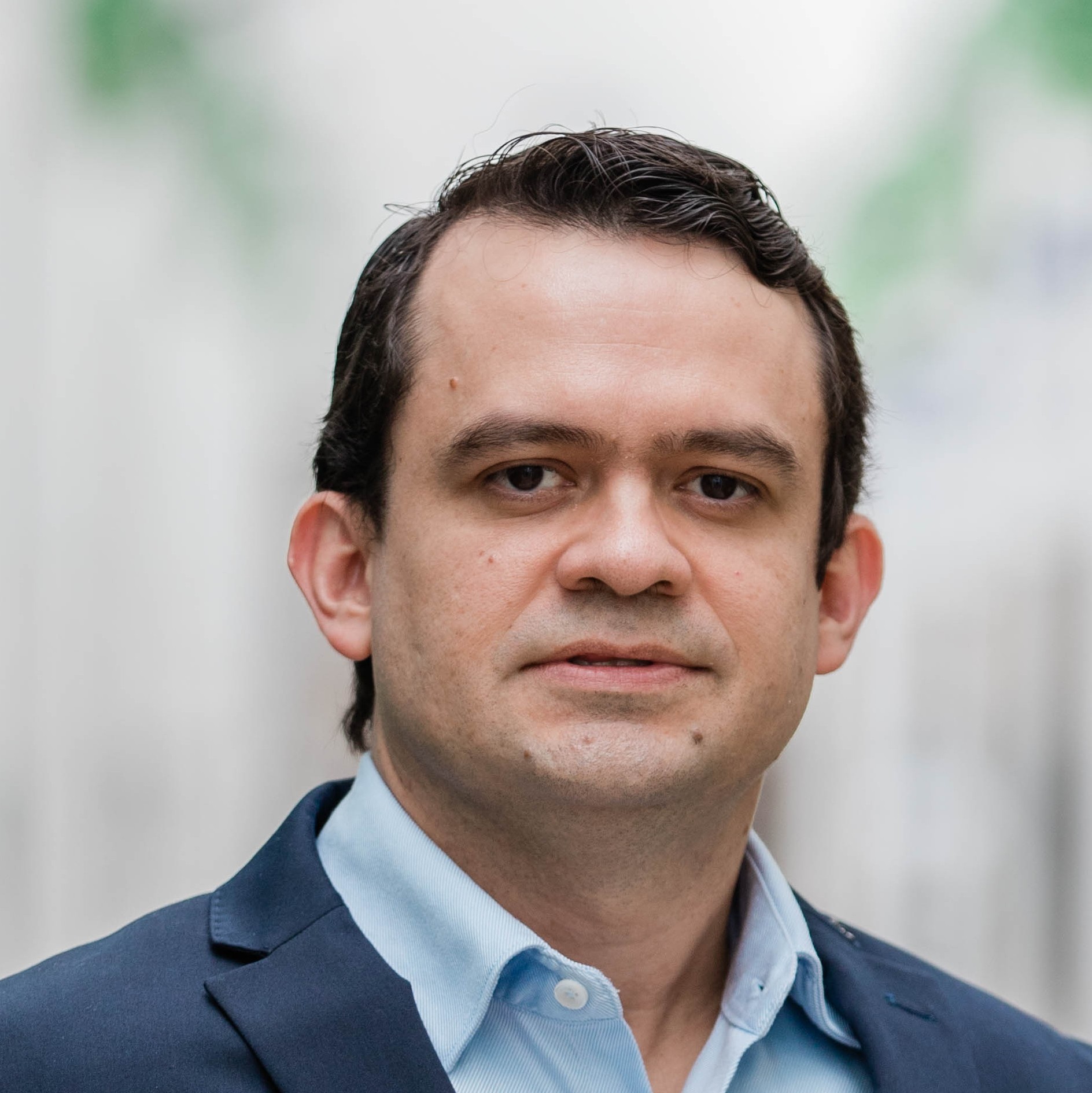PLENÁRIAS CONFIRMADAS

Alejandro C. Frery
Professor of Statistics and Data Science School of Mathematics and Statistics, Victoria University of Wellington, New Zealand
Alejandro C. Frery
Alejandro C. Frery was born in Mendoza, Argentina, on 21 February 1960. In 1983 he received a B.Sc. in Electronic and Electrical Engineering from the Universidad de Mendoza. His M.Sc. degree was in Applied Mathematics (Statistics) from the Instituto de Matemática Pura e Aplicada (IMPA, Rio de Janeiro, 1990), and his PhD degree was in Applied Computing from the Instituto Nacional de Pesquisas Espaciais (INPE, São José dos Campos, Brazil, 1993). In 2007 he made a Postdoctoral stay of six months at IMPA, and in 2017 two months with the Northwest Institute of Eco-Environment and Resources (Chinese Academy of Sciences, Lanzhou) under the President’s International Fellowship Initiative (PIFI).
Since 2003 he has been a full professor at the Universidade Federal de Alagoas (UFAL), Brazil. He has held a "Huashan Scholar" position at Xiamen University, Xi'an, China, since 2019. He was the University Vice-Chancellor for Research, Graduate Courses, and Innovation from January 2016 to January 2020. Currently licensed from UFAL since May 2020, he is a Professor of Statistics and Data Science at the School of Mathematics and Statistics, Victoria University of Wellington, New Zealand.
After serving as Associate Editor for over five years, Prof. Frery was the Editor-in-Chief of the IEEE Geoscience and Remote Sensing Letters from 2014 to 2018. Since 2015 he has been one of the IEEE Geoscience and Remote Sensing Society (GRSS) Distinguished Lecturers. In 2018 he received the IEEE GRSS Regional Leader Award. Since 2019 he has served as AdCom (Advisory Committee) member for this Society, in charge of Future Publications, Plagiarism, and Regional Symposia until 2022, and as Vice-President for Publications since 2023.
His research interests are data visualisation, statistical computing, and stochastic modelling, with signal and image processing and networks applications.
Introduction to Signal Analysis with Ordinal Patterns
Abstract: Ordinal Patterns are a non-parametric transformation of subsequences. They were proposed by Bandt & Pompe in 2002 as a means to unveil the underlying dynamics that govern signals. Ordinal Patterns have several interesting properties, among them being resistant to outliers and invariant to strictly increasing transformations. With more than 2600 citations, they are a powerful tool for analysing time series, images, and networks. This talk is an overview of Ordinal Patterns, ways of analysing them, applications, and future research directions.

Ali H. Sayed
Dean of Engineering, École polytechnique fédérale de Lausanne (Swiss Federal Institute of Technology Lausanne), Lausanne, Switzerland
Ali H. Sayed
A. H. Sayed serves as Dean of Engineering at EPFL, Switzerland, where he also directs the Adaptive Systems Laboratory (https://asl.epfl.ch/). He has served before as Distinguished Professor and Chair of Electrical Engineering at UCLA. He is a member of the US National Academy of Engineering (NAE) and The World Academy of Sciences (TWAS). He served as President of the IEEE Signal Processing Society in 2018 and 2019. An author of over 600 scholarly publications and 9 books, including most recently the 3-volume treatise on Inference and Learning from Data, published by Cambridge University Press in 2022. His research involves several areas including adaptation and learning theories, data and network sciences, statistical inference, and information processing theories. His work has been recognized with several major awards including more recently the 2022 IEEE Fourier Technical Field Award and the 2020 IEEE Wiener Society Award.
Social Machine Learning
Abstract: Modern society is witnessing the emergence of complex networked systems driven by exchanges of information among their elements, such as robotic swarms, autonomous systems, social networks, and Internet-of-Things (IoT) architectures. In these applications, data is often collected from heterogeneous sources and from dispersed locations. It becomes imperative to design learning machines and decision-making algorithms that are better suited to the reality of networked units. The methodologies will need to account for coupling among intelligent agents in a manner that enables multi-tasking and is robust to interference.
This talk introduces a framework for decentralized learning from networked data, which we refer to as Social Machine Learning. This approach handles heterogeneity in data more gracefully than existing methods, learns with performance guarantees, is more resilient to adversarial attacks, and promotes explainable and fair learning. By relying on social interactions among agents, the architecture is also infused with a higher level of robustness to manipulation. This is because it is more difficult to fool a group of agents than an individual agent.

Daniel Benevides da Costa
Principal Researcher, Technology Innovation Institute (TII), Abu Dhabi, United Arab Emirates
Daniel Benevides da Costa
Dr. Daniel Benevides da Costa was born in Fortaleza, Ceará, Brazil, in 1981. He received the B.Sc. degree in Telecommunications from the Military Institute of Engineering (IME), Rio de Janeiro, Brazil, in 2003, and the M.Sc. and Ph.D. degrees in Electrical Engineering, Area: Telecommunications, from the University of Campinas, SP, Brazil, in 2006 and 2008, respectively. His Ph.D thesis was awarded the Best Ph.D. Thesis in Electrical Engineering by the Brazilian Ministry of Education (CAPES) at the 2009 CAPES Thesis Contest. From 2008 to 2009, he was a Postdoctoral Research Fellow with INRS-EMT, University of Quebec, Montreal, QC, Canada. From 2010 to 2022, he was with the Federal University of Ceará, Brazil. From January 2019 to April 2019, he was Visiting Professor at Lappeenranta University of Technology (LUT), Finland, with financial support from Nokia Foundation. He was awarded with the prestigious Nokia Visiting Professor Grant. From May 2019 to August 2019, he was with King Abdullah University of Science and Technology (KAUST), Saudi Arabia, as a Visiting Faculty, and from September 2019 to November 2019, he was a Visiting Researcher at Istanbul Medipol University, Turkey. From 2021 to 2022, he was with the National Yunlin University of Science and Technology (YunTech), Taiwan. Since 2022, he is Principal Researcher of the AI and Digital Science Research Center at the Technology Innovation Institute (TII), a global research center and the applied pillar of Abu Dhabi's Advanced Technology Research Council. He has been ranked among 1% Top Scientists in the world in the broad field of Electronics and Electrical Engineering in 2022 and 2023 (Source: Research.com). He has been Editor of several IEEE journals and has acted as Symposium/Track Co-Chair in numerous IEEE flagship conferences. Since July 1st, 2023, he is the Editor-in-Chief of the IEEE Communications Letters.
The Path Beyond 5G: Challenges and A Glimpse from a Multiple Access Perspective
Abstract: Is 10-year still a feasible gap between G’s? Did 5G fulfill what was promised? What are the 5G lessons learned? While 5G is still under implementation in many countries of the world, the scientific community (plus International Telecommunication Union) started to work on beyond 5G standardization even though there are some unconnected dots which still need to be connected. One of the unaddressed issues is related to massive connectivity (one of the pillars of 5G), especially on how to deal with multi-user interference. Since the fundamental limits of multi-user multi-antenna communications with imperfect channel state information (CSI) are still an open problem, 5G design relied on a kind of “robustification” instead of being designed from scratch to be truly robust to imperfect CSI.
This talk will first discuss the journey and challenges beyond 5G. After a brief summary on the road ahead, the need of a flexible and robust multiple access framework to tackle multi-user interference in a general system setup will be emphasized, in which rate-splitting multiple access (RSMA) will be proposed as a potential candidate to cope with that. Three dual-polarized downlink transmission approaches for a massive multiple-input multiple-output (MIMO) RSMA network under the effects of polarization interference and residual errors of imperfect successive interference cancellation (SIC). In addition, the potential synergy between intelligent reflecting surface (IRS) and RSMA will be discussed, in which it will be exploited the advanced capabilities of dual-polarized IRS for unleashing an enhanced RSMA polarization multiplexing. Finally, it will be presented a general idea on how to implement a space-efficient method for realizing enhanced and adaptive integrated communication and powering. In a nutshell, the talk aims to provide a big picture on the path beyond 5G, focusing on some unaddressed points and showing a glimpse from a multiple access perspective.


